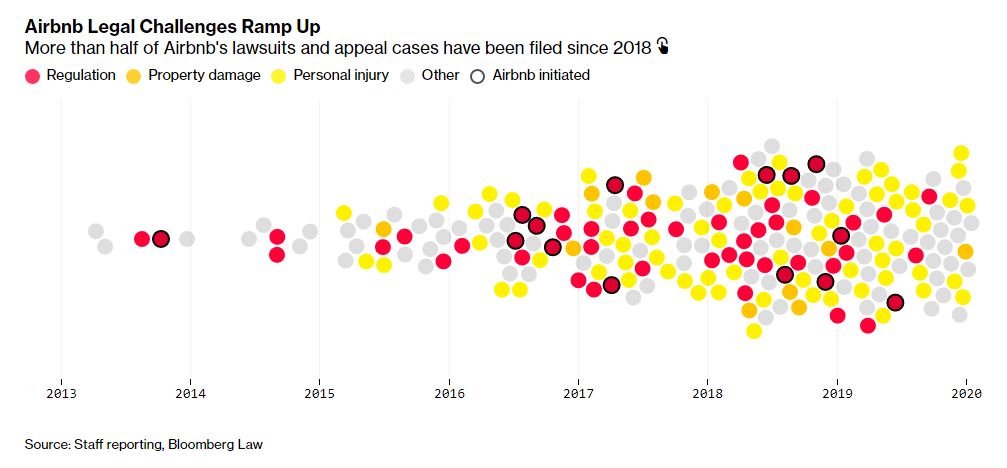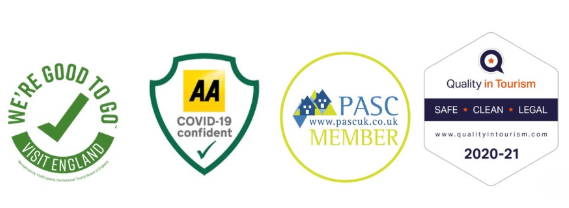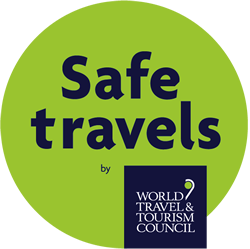The professional face of the vacation rental property world is being re-modeled daily and it’s not just plastic surgery, it’s a full face transplant. Guests expect it, marketing companies demand it and as the inventory continues to grow, the competitive situation will leave many vacation rentals looking old, tired and empty.
The global corporations and growth have also awoken government bodies, tax authorities, and pressure groups. These are retroactive actions based on a changing hospitality ecosystem but it also means a radical rethink of operational activity by all hosts and managers.
As an indication of the momentum over the last couple of years, legal challenges are always a good place to measure market momentum. If there is blood in the water, expect a shark to appear and there is a lot more chum these days to attract predators.
Apart from this article, penned last week, ShortTermRentalz yesterday published an article on exactly this aspect and a single takeaway paragraph where a lawyer “expressed his concern that more “dilettante” hosts, as opposed to those seeking to professionalize the industry, would be caught out by not having the right steps in place in case they are brought to court”.
Check out the litigation now creeping into the market. The most notable is Airbnb in terms of press coverage as Bloomberg highlights in this article.
 With the move to a frictionless e-commerce environment and increasing the distance between guests and hosts (to avoid leakage), there are many more disclosures, guarantees and certifications needed if a guest is to be confident that they are safe.
With the move to a frictionless e-commerce environment and increasing the distance between guests and hosts (to avoid leakage), there are many more disclosures, guarantees and certifications needed if a guest is to be confident that they are safe.
Hotels are legally obliged to operate in this way and now vacation rentals are in the crosshairs of authorities, lawyers, and of course, guests. Reviews are one of the guests’ weapons and have been used to great effect to beat on the bad actors but sometimes on the good ones too.
The risks are everywhere – Standards needed
Global growth has simply highlighted the wide variety of quality controls and a host’s perspective on what is “good enough”. The bad actors have exacerbated the issues and with obvious dangers and complaints come the policy police and the opportunists. Globally and even within nations there are many variations on the rules and regulations, but in time we can expect all of them to principally align in terms of practice and risk determination.
To name a few risks may illustrate where we are headed: House wiring, electrical goods, gas appliances, carbon monoxide, and dioxide detectors, access statements, disabled access and use, pool management, spas, saunas, fire extinguishers, gym use, public liability insurance, outdoor amenities…These all need to form part of a solid risk assessment, not forgetting COVID and after such a long period of inactivity, Legionella.
Hygiene is the headline act
At the very top of this list is the cleaning and will be for many months to come. After that companies will push products through scary marketing practices, highlighting cleaning procedures to guests and operators. Travelers often have short memories, but with airports, hotels, rentals, all media channels and Governments hammering this issue home, hygiene, in general, will not go quietly into the night.
COVID obviously has a special place in this picture of governance. All of the above visual challenges are part of normal domestic life and guests can be expected not to poke their fingers into light sockets or let their children swim in the pool by themselves and can read instructions. In the case of transmissible viruses, no-one, unless they have an electron microscope to hand, can see the dangers. In this case, well-managed prevention is the obvious course of action.
Cleaning is an expensive and time-consuming exercise and is prone to shortcuts.The hotel report by Skift illustrates the costs and focuses on resolving this problem. A single shortcut, however, could end a life or a business and it is, therefore, essential to ensure that all risks are addressed and these are many, some hidden. There is one virus on everybody’s mind but as mentioned above Legionella is an even more dangerous microbe in its own way with sources including building cooling towers, swimming pools (especially in Scandinavian countries), domestic water systems and showers, ice-making machines, refrigerated cabinets, and whirlpool spas. Many of which are found in vacation rentals.
Consider your rental as an operating theatre and cleaners as surgeons (seriously).
If you have an operation, you expect everything to be monitored and professionally handled. If you have a simple procedure and you leave with sepsis, then you know something went wrong. Hospitals use the equipment, fluids, material supplies, gloves, antibiotics, and much more (sound familiar?). Each product from any suppliers has to be manufactured, batch tested, documented, logged, and follow raw material guidelines and quality standards. So if something does go wrong it can be traced back to its source and rectified. More chum!
A guest wants to be reassured that they are safe, have no concerns, and to enjoy their holiday. It is up to the host and managers to ensure that all bases are covered.
National standards are being adopted for the cleaning and disinfection process and recommendations for short term rentals and hotels are now in place in many countries.
This is only part of the equation however and like a surgeon, cleaners need to actually follow protocols established by the medical community but adapted to each patient’s particular situation. The surgeon will also only use approved sterile instruments and materials and likewise, cleaners are required to do the same and adopt proven methods and products.
Clean it and Log it
In a world of blame and lawyers who chase ambulances, all these elements need covering by each and every host and manager if the owner uses them. No host or company needs a review which says “ I contracted COVID, while staying at this rental” or “there was a smell of gas in the evenings”.
Some risks can be covered by simple visible statements, but some need professional intervention, such as electrical and gas testing. These can be performed regularly and documented by third parties to evidence this. These companies themselves need to be certified to do their job.
There is no superman cleaning force in place on a global scale and this very important activity is left to already hard-working and often underpaid cleaners, who may be seasonal, part-time or doing second jobs to help ends meet.
The WHO (World Health Organisation) recommends logging cleaning activity and any protocols that are followed. This naturally assumes recording of the actual process, the materials used, the timings, and the people involved. It also assumes that training is also given and cleaning staff are qualified to undertake the cleans.
Risk assessments come first: The initial scoping to create the property hygiene and general safety protocol is a solid risk assessment which is often anchored in legislation and as such dictates keeping records or logs of all activity.
When a guest travels, they are under various recommended protective practices for the trip’s duration: Social distancing, masks, gloves, hand sanitizers and all services and facilities are also required to sanitize effectively. This not only adds reassurances to travelers but is now becoming the norm. It is not enough now to check the shower trays for hairs, the hidden enemy requires a badge of certainty to be displayed at booking time and protocols to be followed.
Contact tracing will involve locations and if somebody contracts COVID then if they stayed at your rental, expect a call. Being able to offer evidence of best practice will help the authorities and the potential for an “ambulance chaser” to turn into a “rental chaser” will be minimized. If you think it may be hard to convince a judge, then you may be correct, but it will be easier if a sound protocol is followed. There is also the question of affording a defense even if innocent!
Marketing Opportunities
In the very near future marketing platforms and OTAs will need to certify many of the elements mentioned above but as a priority, good hygiene practices. This will also be seen as a marketing ploy to draw more custom. In reality, the closer to the operational activity the more powerful the certified activity and these can be used by small operators to deliver direct bookings with extra information. Having logos such as these on your website convey confidence to Guests.
 There is a danger however that the world will adopt a plethora of practices and companies will claim them as a private brand and we will see a confusing morass of meaningless badges.
There is a danger however that the world will adopt a plethora of practices and companies will claim them as a private brand and we will see a confusing morass of meaningless badges.
In the last few days Booking.com, Airbnb, and Expedia have all adopted the generic advice of the World Travel & Tourism Council who plan to allow use of the Safe Travels “stamp”. The question of tracking and qualification still applies, as this particular premise is based on trust not an audit, and a more general advice policy.

Reducing risks and building confidence requires qualified protocols and inspections. The UK has already pushed ahead in the rental sector and protocols standardized and adopted.
Technology is central to traceability
Technology will need to sit atop of these certification processes and their governance and development. Record keeping of activity is best kept digitally and checks and measures are best suited to sporadic visits by third party organizations, but the ultimate solution would of course be a video of every clean. This is of course impractical, but a continual record throughout the clean process by cleaners following the approved procedure would prove adherence to guests and create a certification.
Data and its exchange is controlling nearly every element of the vacation rental world. A cleaner’s record-keeping will need storage, the completion of a clean may require a distributed confirmation to a PMS, an OTA, a local DMO, a Guest Service App, and much more.
This may sound simple, but anyone involved in this sector knows that apart from a whole new level of technical development, it also requires business relationships and political savvy to navigate the complex world of marketplaces, channel management, and hardware.
It’s Time
COVID-19 hit this market like a runaway train and has not only caused widespread distress but has also highlighted the other areas of vulnerability in the professionalization of vacation rentals.
It is no surprise that all the major hotels have adopted their own hygiene brands and marketplaces have approved the WTTC. This is also about control of the ecosystem and needs to start at the supply chain where the cleaning actually happens.
There is a huge opportunity to now put in place the checks and balances and develop a guest-centric business based on national agreements on certifications, policies and procedures underpinned by technology. This is not only putting a more professional face on the business but also taking control of the business at a grassroots level. How:
- Join a credible association who is knowledgeable and works on the industry’s behalf.
- Ensure all the necessary protocols are followed and
- Use technology to monitor, increase efficiency and log the activities
Need any help then email [email protected] and we can point you in the right direction!
Refs:-
- https://www.assc.co.uk/policy/cleaning-protocols-for-self-catering-properties-in-the-context-of-covid-19/
- https://www.qualityintourism.com/quality-assessment/safe-clean-and-legal
- https://www.pascuk.co.uk/standards
- https://www.who.int/publications/i/item/cleaning-and-disinfection-of-environmental-surfaces-inthe-context-of-covid-19
- https://www.bloomberg.com/graphics/2020-airbnb-ipo-challenges/
- https://wttc.org/COVID-19/Safe-Travels-Global-Protocols-Stamp/moduleId/1491/itemId/105/controller/DownloadRequest/action/QuickDownload
- https://www.ratedtrips.com/aa-covid-confident
